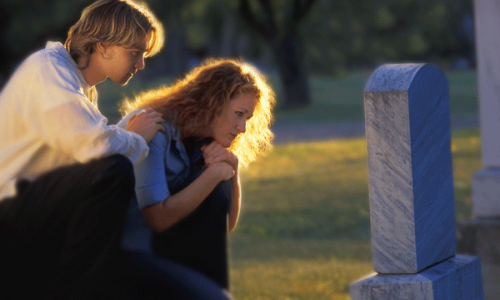
7 Unexpected Ways in Which Experiencing Grief Improves Your Life
Grief is powerful and can be crippling. The loss of a loved one, a relationship, a marriage and even a job can cause tremendous amounts of grief. When you’re grieving, it’s hard to imagine ever being optimistic again.
However, life goes on. As a human being, you have to accept what happened and move on with your life. People might try to convince you that time will make it better, but this isn’t completely true. The passage of time causes things to hurt less, but it doesn’t change the fact that you are fundamentally changed as a person because of the grief you have experienced. You have to learn how to cope without the presence of a loved one or a relationship.
Grief changes you, but it’s not all bad. In fact, you can learn several important lessons about life and the way the world works from a traumatic experience. Here are some benefits of experiencing grief.
1. You learn how to cherish your relationships.
Through the loss of a loved one or a traumatic experience, you find out who you can truly rely on. When you’re going through a tough time, your true friends and family will be there for you. You’ll be able to see your relationships for what they are. It will make you realize how amazing the people who rushed to your side are. It will make you want to lend them the same support they have given you. The relationships that survive will be more valuable. You will learn how to be more grateful, forgiving and loving in relationships.
2. You learn how to manage your money.
Personal tragedy makes you reevaluate your finances. You learn the importance of managing money. You will realize that it is important to have a sound financial structure in place so you can deal with sudden and unfortunate events. After all, even if you’re mourning the loss of a loved one or a career, you still need to pay the bills.
3. You learn the importance of being healthy.
Watching a loved one suffer through illness makes you understand how fragile human beings are. It makes you take stock of your own life and forces you to adopt healthier habits.
4. You become more introspective and spiritual.
Grief is an intensely personal experience that causes you to look deep within yourself for solace. It will make you more inclined to count your blessings, pray and meditate. Your search for strength and solace will make you revisit your priorities and responsibilities.
5. You’re less likely to sweat the small things.
After a traumatic event, your entire worldview changes to focus on the things that are really important. You don’t worry so much about the color of your shoes or which airline you need to choose for your next trip. Most of the things that used to worry you will seem inconsequential in retrospect.
6. You become motivated to live more fully.
After a loved one has passed or moved out of your life, it makes you think of all the time you spent together. It reminds you of the good times, the things they used to say and the things you did together. You understand the importance of creating memorable experiences, of spending time doing the things you love and giving more attention to your loved ones. You will begin to change your life dramatically in light of these new realizations.
7. You become more capable of giving and receiving love.
The magnitude of your grief might make you want to stay away from loving or being attached to anyone again. However, there’s another lesson to learn from your loss. Losing a loved one shows how important loving relationships are to your life. If they weren’t important to you, how would you explain the feeling of loss and sadness? Grief makes you capable of loving someone fully because you realize how lucky you were to have love in your life.
Dealing with grief is a tremendously difficult process. Nostalgia and sadness can make it tough to get out of bed in the morning. You’ll have to deal with advice from people who know nothing about what you’re experiencing. You’ll never be the same person again. You’ll learn, and through your grief, you will become a better person.


